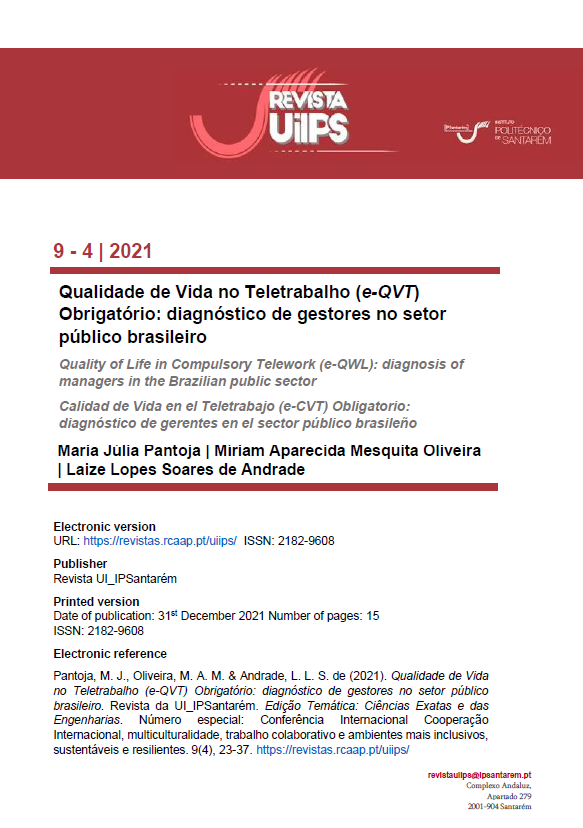Quality of Life in Compulsory Telework (e-QWL): diagnosis of managers in the Brazilian public sector
DOI:
https://doi.org/10.25746/ruiips.v9.i4.26207Keywords:
Public managers, public organizations, quality of life in telework, telework, remote workAbstract
This study aimed to analyze the levels of Quality of Life in Telework (e-QWL) and discuss its implications for the well-being of Brazilian public managers from various organizations of the executive and judiciary powers. Therefore, the research assesses the perception of 359 public managers regarding the five dimensions of e-QWL. The results found showed satisfactory levels of e-QWL in the dimensions of teleworker activities, telework management, technological support and physical work conditions. On the other hand, the work overload dimension shows the predominance of representations of malaise at work, especially with regard to the perception of greater demand for results and the demand for greater commitment. These results allowed identifying challenges for public organizations, such as the need for adequate planning, the preparation and selection of managers and public servants, as well as the adequacy of people management policies and practices to the specifics of this new organizational reality.

Downloads
Published
How to Cite
License

This work is licensed under a Creative Commons Attribution-NonCommercial-NoDerivatives 4.0 International License.
Authors publishing in this journal agree to the following terms:
Authors retain copyright and grant the journal the right of first publication, with the article simultaneously licensed under the Creative Commons Attribution License that allows sharing of the work with acknowledgement of authorship and initial publication in this journal.
Authors are permitted to enter into additional contracts separately for non-exclusive distribution of the version of the article published in this journal (e.g., publish in an institutional repository or as a book chapter), with acknowledgment of authorship and initial publication in this journal.
Authors have permission and are encouraged to publish and distribute their work online (e.g., in institutional repositories or on their personal webpage) at any point before or during the editorial process, as this may generate productive changes, as well as increase the impact and citation of the published work.


